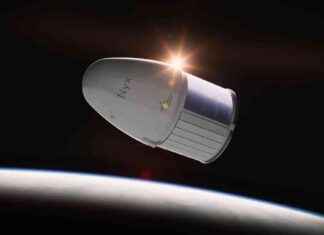NFL teams will continue to modify their rosters during the free agency period, which opens at 4 p.m. ET on Thursday, March 9. With hundreds of free agents in the mix, how do organizations win players over? NFL Network analysts discuss their experiences in free agency and share how they were ultimately persuaded to sign.
Nate Burleson, an unrestricted free agent in 2010, and his agent had a list of organizations in need of wide receivers that they would begin contacting when the free agency contact period opened. But the Detroit Lions ended his search before it began.
Burleson had just finished a four-year stint with the Seattle Seahawks and originally planned to re-sign with his hometown team. But on the night free agency opened, Burleson, who wanted to keep his options open, went to the spot where he had heard a Lions representative might be.
"The moment the clock struck 12:01 a.m., (then-Lions offensive coordinator) Scott Linehan was sitting down at the restaurant ready to negotiate," Burleson said. "That was the ultimate sign. He made me a priority and that was the selling point. Regardless of the negotiations and the money, when I walked in the restaurant and he was there, I knew I was going to sign with Detroit."
Burleson said he never honestly considered playing in Detroit prior to that meeting because the Lions had one of the NFL’s best receivers — if not the best receiver — in Calvin Johnson. But Linehan continued to sell Detroit.
"[Linehan] said, ‘In order for us to win, we need a guy like you.’ It was a lot different than, ‘Hey, we’re bringing you in to help us win,’ " Burleson remembered. "The way he phrased it was that I was a really big part of what they were trying to build. It made me think it was a marriage meant to be."
Soon after, Burleson signed a five-year, $25 million contract with the Lions.
In a matter of seven days back in 2006, linebacker Willie McGinest parted ways with the New England Patriots, visited Cleveland and signed a three-year, $12 million contract with the Browns. How did it happen so fast?
Cleveland was the first stop on McGinest’s free agency tour because of Browns head coach Romeo Crennel, who had been the Patriots’ defensive coordinator during their Super Bowl-winning seasons of 2001, ’03 and ’04. McGinest’s familiarity of Crennel’s system was the ultimate selling point.
"I didn’t even need a book. I knew the system like the back of my hand," McGinest said, adding he also had visits scheduled with the Cowboys, Jets and Chargers. "I would be able to come in and play right away and help teach the younger guys, mainly Kamerion Wimbley, Cleveland’s [first-round draft pick] that year. They were switching from a different defense to that one, which I played in my whole career. They knew I could bring leadership and be effective in the system."
While he was touring the facilities, McGinest said, his agent was already negotiating with Cleveland GM Phil Savage.
"They had a deal by the end of my visit," McGinest said. "I think everybody knew it was going to be a good fit. It was just a matter if I was going to accept it or give New England an opportunity to match the offer."
Following the 2008 season, Heath Evans understood Patriots head coach Bill Belichick’s position — that Evans could sign one-year contracts for the next several years but would have a small role in his dynamic offense.
"I respected that, and I felt like Benedict Arnold leaving New England," Evans recalled, "but it was the selfish ambition of wanting to play more. It wasn’t as much about money as it was about displaying what I was able to do. Most people would’ve chased the bigger payday, but I didn’t want to lose. After you taste winning the way New England does it, you don’t want to go backwards. At least I didn’t."
Evans had several interested teams, but in his meeting with New Orleans Saints GM Mickey Loomis and head coach Sean Payton, he found the right fit.
"That humility from a GM and a head coach who had already had that success meant a lot to me because there aren’t a ton of GMs and coaches in this league who have that. Everybody wants to win their own way, but they told me, ‘Hey, we want what New England has and we’re trying to formulate what we’re building here off what they are. We want pieces of their puzzle that can come here and help us lead and become that,’ " Evans said. "Then, the plan they laid out was such that I was going to be on the field for 40 snaps a game."
It was a winning combination for Evans, who signed a two-year, $2.1 million contract with the Saints. Although Evans suffered a season-ending knee injury midway through the 2009 campaign, New Orleans went on to win Super Bowl XLIV.
After being the Giants’ QB2 behind Eli Manning for the 2008 and ’09 seasons, David Carr knew he wanted one last shot to earn a starting job. One team that seemed to be a perfect fit: the San Francisco 49ers.
Want more than stats and scores? Head to Sidelines, where NFL Media reporters dig deep to find the compelling, thoughtful stories that are the heartbeat of this game.
Our editors found this article on this site using Google and regenerated it for our readers.





